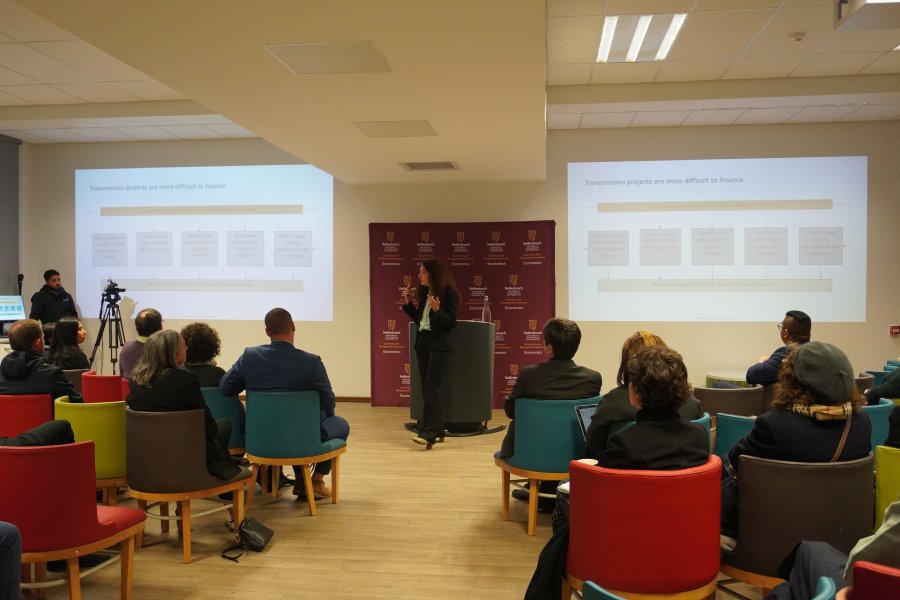The Bureau for Economic Research (BER) and the Department of Economics recently hosted a presentation by the Organisation for Economic Co-operation and Development (OECD) which focused on the main findings and recommendations of the 2025 OECD Economic Surveys Report for South Africa.
Working with over 100 countries, the OECD is a global policy forum that aims to establish evidence-based international standards and to find solutions to social, economic and environmental challenges. Its core aim is to shape policies that foster prosperity and opportunity and that is underpinned by equality and well-being.
The OECD Economic Survey of South Africa, which was officially launched and presented to the National Treasury in Pretoria on 5 June 2025, considered the input of government, the private sector and academics. It covers the macroeconomy as well as public finance and structural issues. The report also looked at South Africa’s electricity sector and the country’s transition to the green economy.

Lilas Demmou, head of the South African desk at the OECD, delivered the presentation entitled, “Boosting growth on the path to decarbonisation”.
“South Africa is navigating several challenges with the most important one being to boost growth,” said Demmou. “The country’s economic growth has been disappointing, averaging 0.7% over the last decade. This has not been enough to lift the GDP (gross domestic product) per capita which has stagnated along with poverty and inequality. Another important consequence of low growth is that SA has among the lowest employment rates and the highest unemployment rates. This means that many South Africans struggle to find labour market opportunities.”
She added: “In the survey we look at policies to boost growth and growth potential by focusing on three main areas – infrastructure which is the key foundation for growth, business dynamism and job creation/access to jobs. We also focus on the electricity sector because it is a key element of growth as businesses cannot operate without electricity.”
According to Demmou the survey recommends several broad areas of action to boost growth.
“The first is to strengthen the fight against corruption. The second is to create fiscal space. Public debt, which has risen from 31.5% of GDP in 2010 to a projected 77% of GDP in 2025, is very high so you need to create fiscal space. The third is to establish a pro-competitive framework in infrastructural networks which will enhance business dynamism. The fourth is to strengthen pro-workers urban and transport policies to connect workers with jobs and labour market institutions. These action steps would contribute to increased investment in infrastructure, private investment, job creation, skill matching and provide the foundation for economic and productivity growth.”
Craig Lemboe, Deputy Director at the BER, said the OECD Economic Survey is extremely relevant and timely and adds to the growing calls for a reconsideration of the path towards economic prosperity in South Africa. “A path which is considerably different from the one we have seen over the last decade or so and which looks like it is leading to doom.”
Luiz de Mello, Director of the Economics Department of the OECD which is responsible for economic surveys, said the reason for compiling the South African Economic Survey is twofold.
“One is to better understand the SA economy – what is driving it and what challenges it is facing. The second is to take this information to a forum where all the member countries get together to exchange experiences and good practices and then to bring all this analysis back to South Africa in the hope that it will inform its policy debate.”
In addition, the 2025 OECD Economic Survey of South Africa projects that real GDP will grow by 1.3% this year and 1.4% in 2026. Unemployment will remain elevated, at close to 32% in 2026. Inflation is projected to decline to 3.2% in 2025 before increasing to 4.2% in 2026 as economic activity gains momentum.

